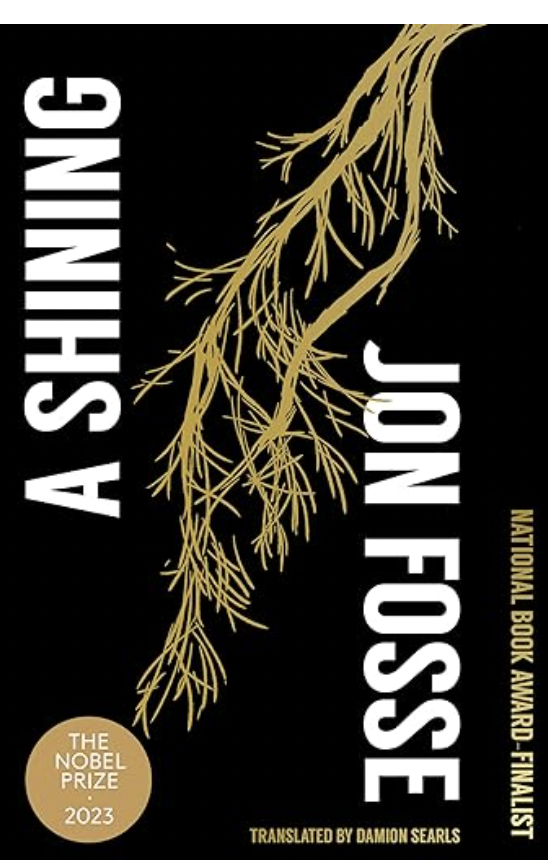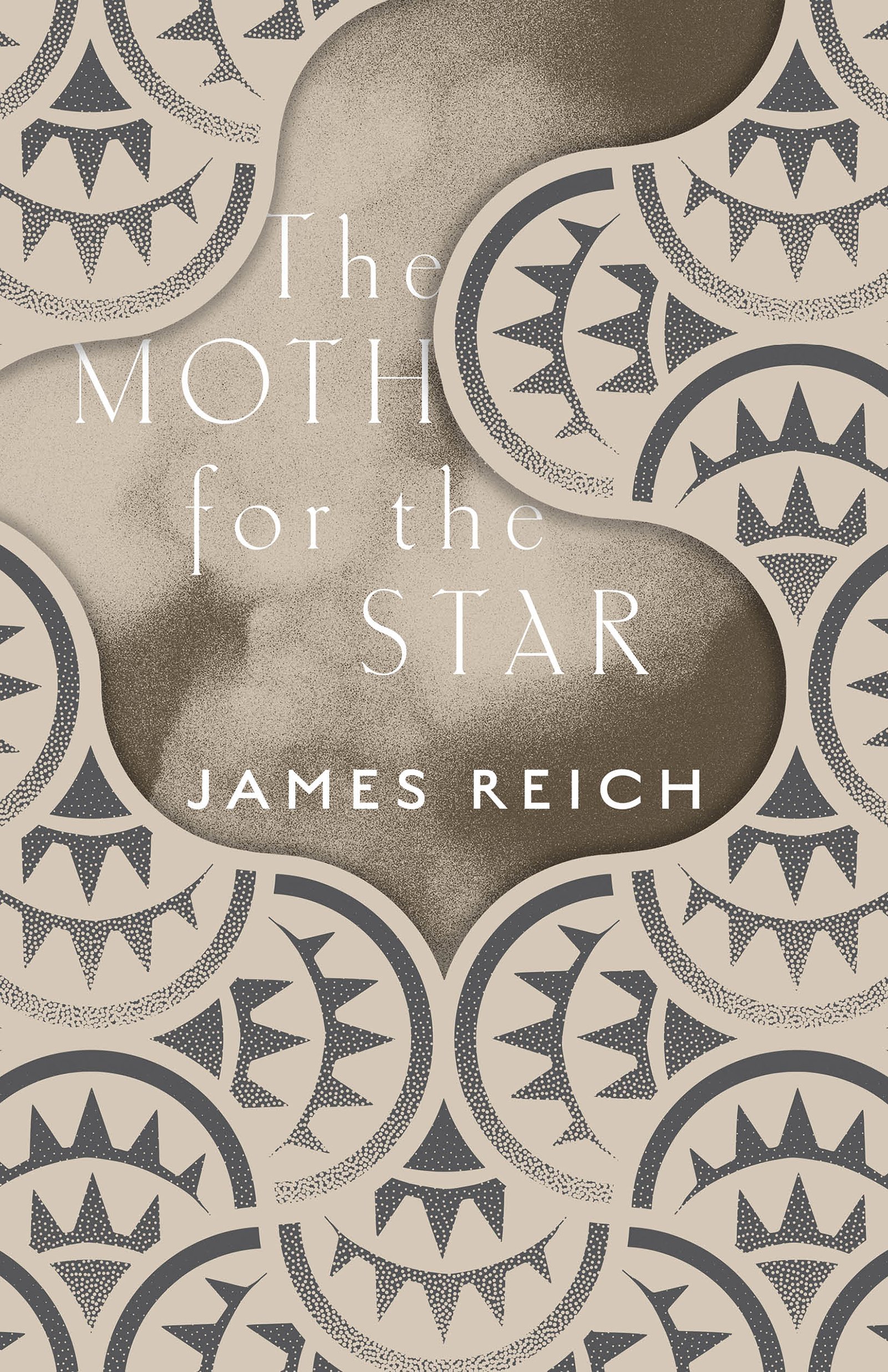REVIEW: A Mesmerizing Novella of Being Lost -- in More Ways than One -- in the Woods
/A Shining
By Jon Fosse, translated by Damion Searls
Transit Books, 112 pp.
By Robert Allen Papinchak
Be careful. Be very careful when you start reading A Shining, the 2023 Nobel Laureate Jon Fosse’s slim, mesmerizing novella. Once you enter the all-enveloping setting of the deep, dark woods there may be no exit. The book-length, uninterrupted paragraph of incantatory prose becomes an immersive experience that is contemplative and meditative, surreal and metaphysical.
One of the Swedish academy’s judges noted that Fosse “touches on the deepest feelings that you have, anxieties, insecurities, questions of life and death.” It appears as if not much happens in the novella yet a great deal is happening to the psyche of the nameless protagonist.
The deceptively simple opening sentence—“I was taking a drive.”—is seductive. The bored, anxiety-ridden first person narrator is driving without direction. When he got “somewhere [he] could turn right or left [he] turned right, and at the next place [he] could turn right or left [he] turned left, and so on.” Perhaps he’s going in circles. Eventually, he “couldn’t go any further,“ when his car gets stuck in ruts at the end of a remote forest road. It’s not just his car that’s stuck, so is he. And it begins to snow.
When he abandons the car in hopes of finding someone with a tractor who can pull it free, he ends up going deeper into the “impenetrable darkness” of Dantesque woods. It’s cold; he’s freezing; he’s tired. His mental condition is deteriorating. He’s disoriented by fear.
Suddenly, an exquisite whiteness appears. Perhaps it’s a person; it’s the “outline of something that looks like a person.” The stunningly shining whiteness is whiter than the white whale, whiter than a Miltonic celestial light. It begins approaching the narrator, “a shining outline, getting clearer and clearer.” It’s “impossible to say whether it’s close or far away . . . it’s so clear in the black darkness.” The challenge is for him to absorb and comprehend what is “probably a woman” or maybe just “thin air, thin air, thin air” and maybe he’d “started seeing things.”
When does reality slip into illusion? He feels “something like a hand” on his shoulder, “heavily but in a way lightly.” He wonders, “[w]hat’s happening here in the middle of the forest, in the black darkness of the trees, where there’s white snow on the branches and on the ground between the trees. That’s what’s here. That and me.”
Then there’s a voice that says, “I’m here, I’m here always, I’m always here.” There was “love in the voice.” Encouraged with hope that he might be able to get out of the forest and find his car again, he begins walking, straight ahead until he feels that “someone, or something, is walking next to [him], and it must be that presence.” A presence that speaks, “I’m walking with you.” The narrator asks why but the presence says, “I can’t tell you that.” The narrator asks, “who are you.” The response is an illusive, “I am who I am.”
As he continues to walk, two people materialize out of “something darker in the darkness.” It’s an elderly couple, his parents. “Can’t you tell from my voice. I’m your mother . . . looking for you. . . coming to help you.” A confounding conversation occurs; the parents disappear “into the darkness” which is overcome by a total silence, a silence in which “God can be heard.”
It is a spiritual silence out of which his mother speaks again, “we’re looking for you,” claiming “we’ll find the way [out], we just haven’t found it yet.” The narrator has a burst of insight, “there are lots of things that are impossible to understand, like for example that I’m deep in the dark forest now, in the dark woods.”
Feeling more tiredness, feeling like he’ll freeze to death, he sees another apparition. A “man in a black suit with a white shirt and a tie” walking barefoot in the snow. And the white presence, “still shining,” appears again. It is “beyond [his] understanding.” It is “sort of beyond the limits, it’s like being locked into a closed room in the forest, trapped, but at the same time it’s like the room is unbounded.” All he knows is, “we are where we are.” Wherever they are.
Still wondering why he is in the forest, contemplating alternative choices (“either my car will just stay stuck or I’ll get it unstuck”) his parents manifest themselves again. This time, his “mother is standing there holding the man in the black suit with one hand and my father with the other hand,” all standing barefoot in the snow. And the “radiant presence” is there, too; “deep in the dark woods there’s a light around [his] mother and father and around the man in the black suit, a shimmering whiteness.” Then they all are “inside the shimmering white light.” They are “walking in thin air”; he has “become part of the shimmering apparition.”
The novella concludes with the glaring revelation that “everything is without meaning . . . everything just sort of is . . . everything is meaning.” There is motion and no motion. There is an “emptiness, a void”; “it’s like nothing exists.” When the group walks “barefoot into the void, breath by breath . . .there’s not a single breath left but only the radiant, shimmering presence that lights up a breathing void . . . with its whiteness.”
The lengthy, breathtaking last sentence is as overwhelming as the brevity of the opening sentence. Captivated by A Shining, the reader becomes submerged in the space between the spaces of Fosse’s extraordinary high-voltage electrifying vision, a willing companion exposed to the infinite light of eternity.
Robert Allen Papinchak is a former university English professor whose reviews, criticism, and interviews have appeared regularly in The New Yorker, Publishers Weekly, Los Angeles Review of Books, On the Seawall, World Literature Today, The National Book Review, Mystery Scene Magazine and in newspapers, literary journals, and online. He was named a Finalist for the 2022 Kukula Award for Excellence in Nonfiction Book Reviewing by The Washington Monthly. His fiction has been nominated for the Pushcart Prize and won a STORY award. He is the author of Sherwood Anderson: A Study of the Short Fiction.










